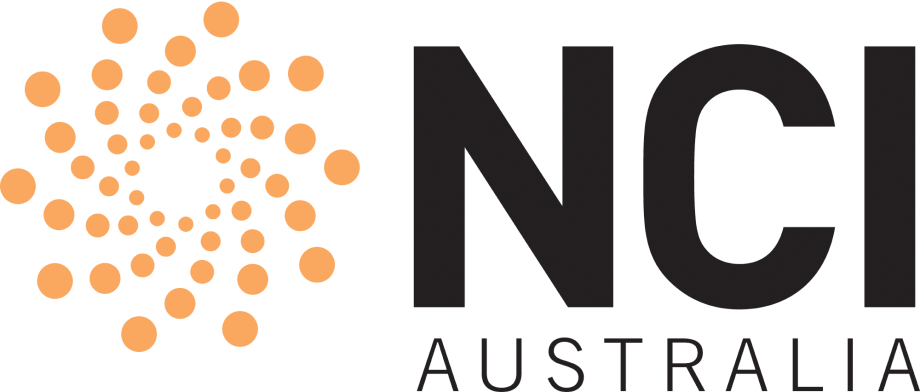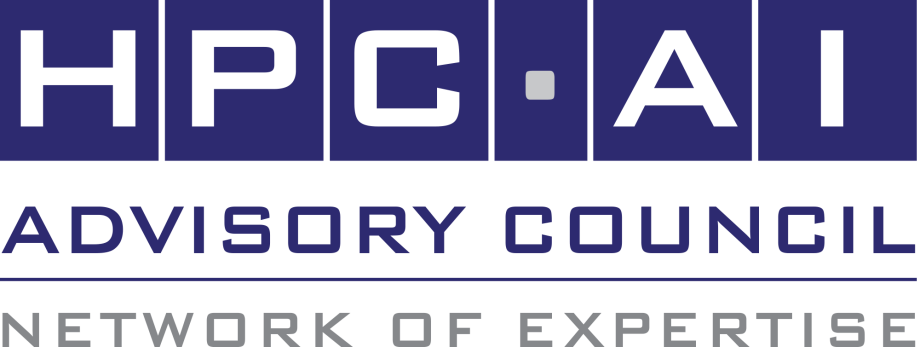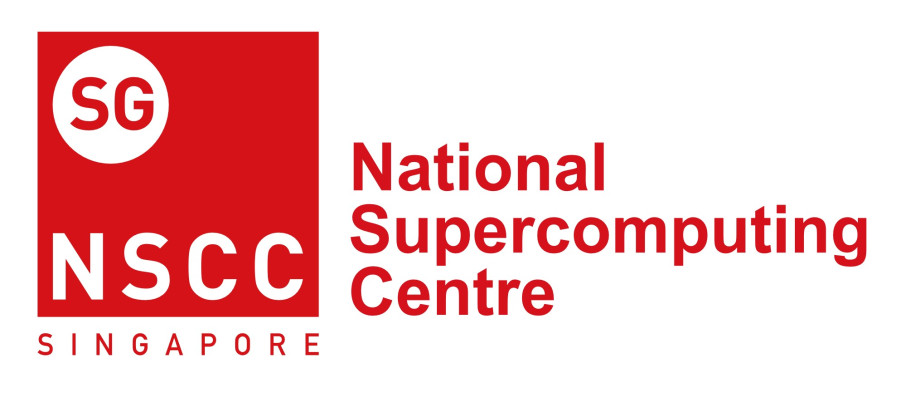NCI Australia, together with the HPC-AI Advisory Council and the National Supercomputing Centre (NSCC) Singapore, today announced the results of the fifth Asia-Pacific HPC-AI Student Competition. The competition allowed student teams to develop skills in High-Performance Computing and Artificial Intelligence while driving better application performance for the pressing global problems of human health and sustainability. In total, more than 100 people in 24 teams from 20 organisations across 12 countries and regions competed over three distinct computational tasks.
The prizewinners were:
First place – National Tsing Hua University NTHU-CM team
Second place – Southern University of Science and Technology team and National Tsing Hua University NTHU-YC team
Third place – National Cheng Kung University team, Thammasat University team, University of New South Wales team and Universiti Putra Malaysia team.
Merit place: The Australian National University team, The Griffith University team and The Singapore A*STAR team
Best HPC performance: The Thailand Thammasat University team
Best Deep Learning performance: The Taiwan National Cheng Kung University team
Best Big Data Analysis performance: The Taiwan National Tsing Hua University NTHU-CM team
Best Presentation performance: The Singapore A*STAR team
NCI Director Professor Sean Smith said, “Development of HPC AI platform capabilities is a key strategic objective at NCI Australia. Events such as the APAC HPC-AI student competition constitute timely milestones that facilitate the build-out of new capabilities on NCI’s Gadi HPC and Nirin cloud infrastructures.”
“NCI staff take the learnings on our side forward and hence make better platform capabilities available for other parts of our Australian research ecosystem. We appreciate the collaboration with our partner organisations and the enthusiastic participation and brilliant skills of the students.”
The three competition tasks were:
- an HPC task using the Quantum ESPRESSO code, to simulate hydrogen separation through thermochemical water splitting,
- a communication task using the Dask code, to focus on OpenUCX-based Dask-CUDA to provide increased performance and scalability in a GPU cluster, and
- an AI task using Deep Learning-Based DNA Sequence Fast Decoding, to better understand transcription factors’ regulatory mechanisms.
NCI provided HPC and AI training and competition task guidance for all teams while empowering the computations through access to the CPUs and GPUs of our Gadi supercomputer and Nirin cloud computer. The training included using Dask for data parallelisation, OpenMP for writing parallel programs on a shared-memory system, OpenMPI for internode parallelism and Gadi training for taking advantage of the NCI resources. Through the hands-on training sessions, participants were guided to run codes on multiple CPUs as well as NCI’s peak GPUs to prepare for the competition tasks.
Gilad Shainer, HPC-AI Advisory Council chairman said, “In order to handle the ever-growing demands for higher computation performance and the increase in the complexity of research problems, the world of scientific computing continues to re-innovate itself at a fast pace. The APAC HPC-AI competition has become a tremendous annual event, bringing hundreds of students from all over the APAC region together to build upon their HPC and AI fundamentals and work on important tasks that are critical to society.”
National Tsing Hua University Team Leader Chun-Mu Weng said, “This is the first time that our team, comprising four sophomores and two juniors, participated in this kind of international competition. During the course of training, we learnt the fundamentals of diversity and versatility of high-performance computing. In addition, thanks to NCI Australia, we were able to run the benchmark and train the model on the DGX-A100 advanced nodes on the supercomputer Gadi. Our team really enjoyed these challenges and had some great times resolving and accomplishing the tasks.”
The results were announced today at the Supercomputing Conference 2022 in Dallas, USA. The award ceremony will take place at the SupercomputingAsia conference in Singapore in February 2023, and the first-placed team will have a reserved spot to represent APAC at the 2022 International Student Cluster Competition at the International Supercomputing Conference in Hamburg, Germany next May.
For announcements about future Competitions, Bootcamps and Hackathons, please keep an eye on NCI’s Events page.



Quotes from NCI training staff:
"I am astounded by the high quality of the work submitted by competition participants," said Ke Ding, Associate Training Officer at NCI. “I was genuinely impressed by the amount of effort each team has put into solving these tasks and the skillsets the participants have built throughout this competition.”
Jiaxin Fan, Associate Training Officer at NCI said, “Coming from different countries and such diverse study backgrounds, the teams have approached and solved the questions in many innovative ways. Some of the results students presented in the interview really surprised the judges, which nicely demonstrated their in-depth understandings of the HPC and AI technology.”
Quotes from competitors:
Worawan Diaz Carballo, Thammasat University (Lampang Campus) – “Benchmarking Quantum ESPRESSO simulation was like jumping into a time machine. The simulation has code longevity and backward compatibility yet supported by the modern software stacks. Accelerating AI tasks on supercomputers was eye-opening to me to experience the modern, fast-evolving ecosystem. With great resources from Gadi, NSCC and ThaiSC, knowledge sharing and collaboration throughout the competition, our team has gained great experience which cannot be taught in any classroom. Our team started with almost zero, but with extensive training and guidance from Slack we could solve the tasks bit by bit. Comments from judges gave us insights and made us more curious about the underlying reasons of the obtained results. A graduate mentioned that he has gained strong skills in reading and working with Docker containers from joining the competition in 2019 and is still thankful for his decision to join the competition.”
Zunyao Mao, Captain of Southern University of Science and Technology Team – “This game is very exciting. I am mainly responsible for the UCX and GPU communication part. Many large-scale parallel computing is based on GPU thread parallelism and multi-server multi-machine parallelism, and inter-GPU communication is an important part of it. We did a lot of experiments to analyse the problem, and realised that optimising the performance of basic software can be considered from many aspects such as compilation and code design, and there are many factors that need to be considered. Thanks for the help from HPC-AI Advisory Council, they gave us detailed and advanced training on HPC related topics.”
Sicheng Zhou, Southern University of Science and Technology Team – “With a tight schedule and limited calculating resources, we did the tests step by step and made full use of both the platforms ourselves and which was provided by the committee, finally conducting out a satisfying optimising strategy. Although meeting a lot of difficulties, my teammates and I made joint efforts to solve them with the help of HPC-AI Advisory Council.”
Jianpeng Xu, Southern University of Science and Technology Team – “The competition is very amazing for me, a student majoring in Physics. I have seen the magic power that the supercomputing cluster has produced. During the competition, we did solve a small science problem through Gadi. Meanwhile, thanks for the detailed training provided by HPC-AI Advisory Council. The topic I was in charge of was to use deep learning to predict the site of DNA transcription. We almost started from scratch, but through the cooperation with the team over the past few months, and through continuous learning and trial, we finally achieved a relatively good accuracy rate , the competition greatly improved my professional level and leadership ability. At the same time, I am also very grateful to the responsible HPC-AI Advisory Council and the leader of my team, because they can help and guide our team in a timely manner when we encounter difficulties. I am also very grateful to my teammates, who put what they have learned into the competition. To sum up, this competition was a very unforgettable life experience, and I benefited a lot in the process. Thanks a lot.”
Chun-Mu Weng, National Tsing Hua University – “This is the first time that our team, comprising four sophomores and two juniors, participated in such kind of international competition. During the course of training, we learnt the fundamentals of diversity and versatility of high-performance computing. In addition, thanks to NCI Australia, we were able to run the benchmark and train the model on DGX-A100 advanced nodes on the supercomputer Gadi. Our team really enjoyed these challenges and had some great times resolving and accomplishing the tasks.”
Ekaterina Zossimova, A*STAR – “The first time our team participated in the competition was in 2020 and we were a mix of international ARAP and SINGA scholars from A*STAR, living and studying in Singapore. It was a great way to meet and work with other students with similar interests and to learn new skills through the competition tasks. The organisers of the competition have always set a diverse range of interesting and relevant HPC and AI problems for us to solve, as well as a more creative innovation challenge. I would encourage other students who have an interest in HPC and AI to participate in the competition because it is a very friendly community and there is always a chance to learn something new both for beginners and those who are more experienced. It is a great privilege to be able to run and test our models on the NSCC and NCI Gadi supercomputers and to have access to a wide range of high-quality training resources provided by the competition organisers. Now we continue the tradition and recruit new students from the A*STAR Scholars Network to participate in the annual competition. A big thank you to everyone involved!”
